From The Marijuana Moment by Ben Adlin September 4 2023
Members of the Eastern Band of Cherokee Indians (EBCI) are set to vote Thursday on a referendum that would legalize marijuana for people over 21—not just tribal members, but any adult who wants to make a purchase.
The proposal is making waves in North Carolina, where marijuana remains illegal for both medical and recreational uses. If the measure passes, EBCI would become the first and only legal producer and retailer of adult-use cannabis within the state or any surrounding state. That’s raised concerns among local officials in North Carolina as well as one of the state’s congressional representatives, who late last week introduced federal legislation that would cut funding to all U.S. states and Indian tribes with legal recreational marijuana.
Despite the blowback, EBCI’s referendum has also caught the attention of other indigenous cannabis advocates, who see the tribe’s fledgling marijuana program as a model of tribal self-determination.
“They built a roadmap for it,” Rob Pero, founder of the Indigenous Cannabis Industry Association (ICIA), told Marijuana Moment. While EBCI is not a member of the association, he said that “we commend them for taking these steps.”
EBCI’s tribal land, the Qualla Boundary, is already the only place in North Carolina where medical marijuana is legal. The Tribal Council passed regulations for the system in 2021, and it opened registration to all North Carolina residents this past June. Thursday’s referendum would permit sales to all adults 21 and older.
Pero, a member of the Bad River Band of the Lake Superior Tribe of Chippewa Indians, said he’s not in a position to speak for any particular tribe, but he acknowledged that EBCI’s unique circumstances have made it a curiosity among many indigenous communities with an interest in cannabis legalization. For some, the tribe’s actions have been an inspiration.
“Tribes look at EBCI as a model for flexing sovereignty and moving policy, regardless of what state they’re in,” he said. “This is a model of self-determination and sovereignty.”
Even the plan’s sharpest critics, such as U.S. Rep. Chuck Edwards (R-NC), acknowledge that EBCI has the right to legalize within its borders. “I proudly consider the tribe my friends, and I respect their tribal sovereignty,” he said in a recent op-ed in the Cherokee One Feather. But Edwards also issued a warning: “To allow our citizens to travel only a few miles to buy and use this common gateway drug,” he said, “would be irresponsible, and I intend to stop it.”
He added, “It is important that the tribe understands they will be voting on a measure that, if enacted, could soon be very costly.”
EBCI Principal Chief Richard Sneed has since described Edwards’s comments as “a major political blunder.” Also writing in Cherokee One Feather, he said he believes Edwards “overstepped his authority,” noting that the congressman is “a non-Indian, elected official telling a sovereign tribal nation how they ought to handle their business.”
Last week the congressman followed through on his threat, filing the Stop Pot Act in the U.S. House. If passed, the bill would impact not just EBCI but also every state and tribal government that has legalized marijuana by withholding 10 percent of federal highway funds to those jurisdictions.
Edwards’s staff did not respond to Marijuana Moment’s multiple requests for comment on his bill or the EBCI referendum other than to email a link to the press release late Friday.
As for EBCI, neither Sneed nor members of the Tribal Council returned repeated calls and emails. The executive director of the tribe’s Cannabis Control Board, Neil W. Denman, forwarded a note from the tribe’s associate attorney general referring questions “to representatives of the Tribal government.”
The tribe has already run into a few snags in its existing medical program. For example Curtis Cochran, sheriff of Swain County, which borders the Qualla Boundary, has raised issues with the tribe regarding what he says is illegal transportation of marijuana across a short stretch of state-owned roadway. “I stated that until North Carolina changes the law,” he told local news last month, “it’s still illegal to possess or transport marijuana on the highway.”
The office of state Attorney General Josh Stein (D), by contrast, is trying to keep out of the matter. “This is an issue that the tribe and local law enforcement will need to work out,” Stein told local TV news.
In further comments to Marijuana Moment last week, a spokesperson for Stein’s office clarified that the North Carolina Department of Justice “does not have jurisdiction to investigate or prosecute most cases,” adding, “This jurisdiction generally lies with the local law enforcement agency or the district attorney.”
Despite the delays, leaders of the tribe’s marijuana business recently said they’ve already grown $25 million worth of products.
Some county Democratic leaders in North Carolina are supporting the tribe in its upcoming vote. Chairs of the Democratic parties of Swain, Cherokee, Jackson and Transylvania counties wrote in a letter last week that Edwards’s congressional bill “reeks of the same paternalism that we have seen throughout the history of federal dealings with tribal governments. This is not the action of a friend with a disagreement. This is patronizing and coercive.”
At least one state lawmaker, Sen. Graig Meyer (D), is also backing the tribe. He wrote in Cherokee One Feather that if the referendum passes, “I will push our partners in state government—from law enforcement to public health officials—to work with the tribe in helping where we can and mostly staying out of your way.”
“The Cherokee tribe could break ground in North Carolina by allowing for legal, regulated cannabis use. I’m jealous,” wrote Meyer, linking to a 2022 op-ed he wrote in favor of legalization. “I respect the sovereignty of the Cherokee people and the tribe’s right to make its own decisions on its land. I’m very interested to see what you decide.”
How exactly tribal law interacts with U.S. state and federal law is a complicated matter. As Pero at ICIA explained, some states—including Wisconsin, where he lives—are governed by Public Law 280, which was enacted by Congress in 1953. The policy granted certain states criminal jurisdiction over tribal members, including those on reservations, as well as expanded jurisdiction for some civil matters.
As the National Institute of Justice, part of the U.S. Department of Justice, acknowledges, the law “drastically altered” the relationship between Native peoples and American government and “had a number of negative consequences for tribes.” Among them, “the act violates tribal sovereignty by giving states criminal jurisdiction,” the its says, and “the act is often cited as a rationale for denying PL 280 tribes funding for law enforcement.”
Initially six states were subject to PL 280, although that number has fluctuated over past decades. Pero at ICIA emphasized that the “checkerboard” of overlapping jurisdictions can be onerous for tribes, who are expected “act in all levels of government, while also developing an economy [and] understanding the do’s and don’ts of grant money from the federal government. We’ve heard for years and years and years that, you know, it can be used for this and can’t be used for that.”
Last year, a Senate committee held a listening session about tribal sovereignty with respect to cannabis at which numerous representatives of Indian tribes and trade associations gave testimony and feedback. “The Seneca Nation of Indians supports a tribal–federal–state framework that allows tribes to create and regulate their own cannabis industry, completely free from state interference,” one official said at the time. “Tribes and tribal communities are in the best position to determine what will and what won’t work on their territories, and we believe that states have no role in this process.”
The session was not considered a formal hearing, however, and no senators participated.
Amid that backdrop, ICIA’s Pero said EBCI’s referendum is an assertion of the tribe’s autonomy. “We’ve always been excited to follow their story,” he said, “and see a tribe flex sovereignty in a state where it’s not legal.”
Asked about Rep. Edwards’s congressional Stop Pot Act, he replied that it “just sounds like fodder to me.”
Tribal governments in a handful of U.S. states have entered the marijuana business as more jurisdictions legalize. Notably, in Minnesota, where state lawmakers passed an adult-use marijuana program earlier this year, tribes are leading the way.
The White Earth Nation voted in July to authorize marijuana sales and has since opened an adult-use cannabis shop. And the Red Lake Nation, which also began sales in August, recently announced plans to launch a mobile marijuana retailer—effectively a cannabis “food truck” that can travel and do business on tribal land throughout the state. Another tribe located within the state, the Leech Lake Band of Ojibwe, is also moving to legalize.
Under Minnesota’s marijuana laws, the state’s governor can also enter into compacts with tribal governments, allowing them to operate on non-tribal land within the state. Many have seen that option as a way to allow the sale of legal cannabis in Minnesota ahead of state licensing, which isn’t expected until 2025. Cannabis regulators said last month that “several” tribes have expressed interest in the arrangement so far.
Edwards, the GOP congressman, is worried about similar expansion of tribal sales happening in North Carolina, noting that the Cherokee tribe holds other lands in the area besides its 57,000-acre Qualla Boundary.
“Given the shoot-first-ask-questions-later wording of the tribe’s question in the ballot,” he wrote in his op-ed, “what would prevent enacting legislation that would allow marijuana dispensaries to open on tribal lands in Graham, Swain, and other WNC counties?”
Photo by Kyle Jaeger.

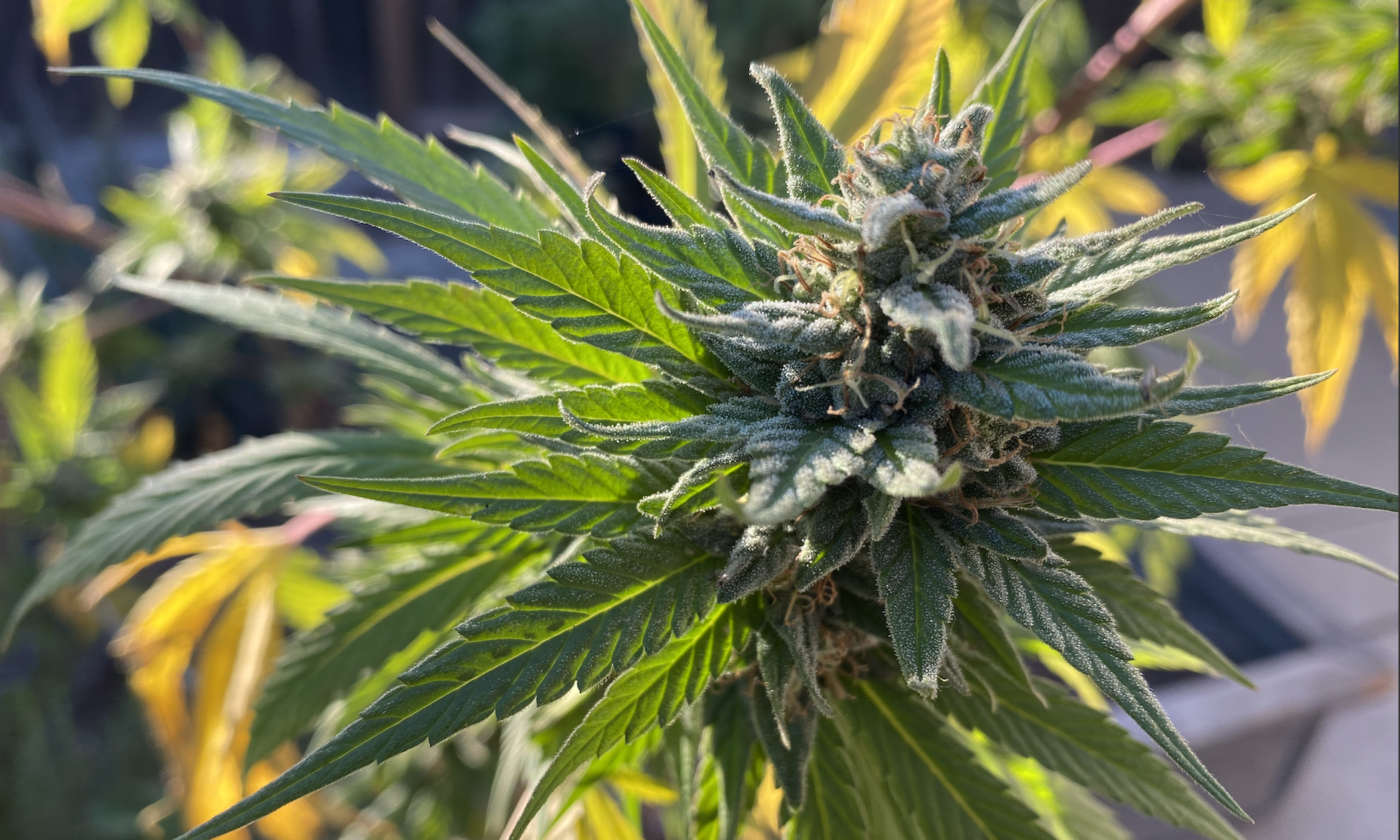






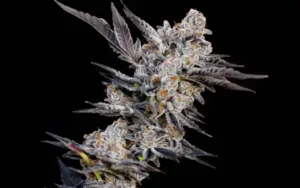


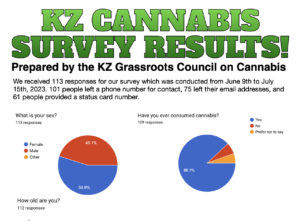
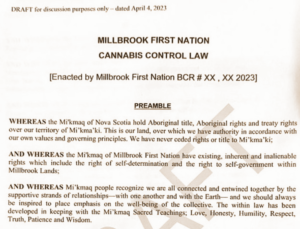


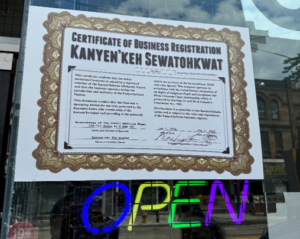




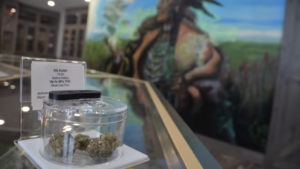

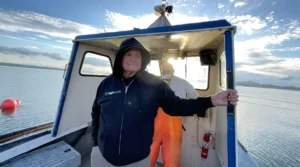





Comments are closed.